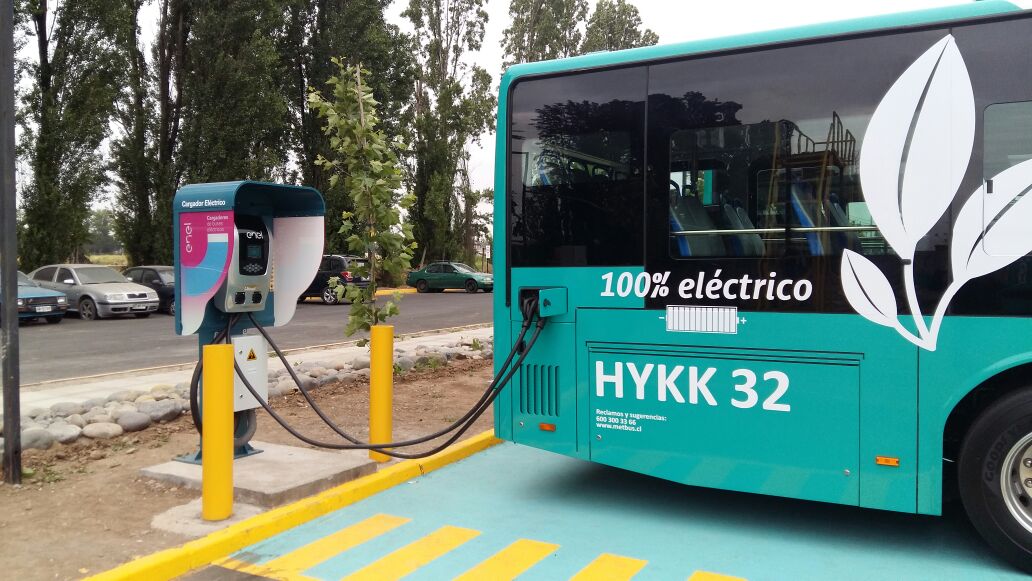
Photo: Bus-electrico-Santiago-2
New LatAm partnership to increase electric bus numbers
30 October 2018
by Jonathan Andrews
A new association will support the planning and financing of the accelerated implementation of zero-emission buses in Latin American cities.
Called ZEBRA and formed by C40, the International Council of Clean Transport (ICCT), the World Resources Institute and the Mario Molina-Chile Center, it will work with municipalities, financial institutions–including the Inter-American Development Bank–and manufacturers.
For the Secretary of Mobility of Quito, Alfredo León, the initiatives promoted by ZEBRA will align with his city’s project to decarbonise transport and promote clean technology.
“Actions cannot be taken from one day to the next,” he said. “They require medium- and long-term planning, taking into account financing for the acquisition and change of fleets in public transport, from combustion to zero emissions.”
Over the next two years, the ZEBRA partnership aims to secure commitments from major bus and engine manufacturers to collaborate with cities on vehicle specifications, charging strategies, pilot projects, financing and other steps necessary for fleet-wide deployment of zero emission buses. In addition, it will seek commitments from regional financial institutions for US$1 billion in available financing to replace older diesel buses with electric bus purchases.
Celia Iturra, consultant in Sustainable Mobility in Chile, welcomed the news.
“Technological barriers and myths about these vehicles have been weakened thanks to advances in technology,” he said. “Now, the challenge is to create new financial and economic instruments that allow both cities and interest groups associated with the purchase and operation of buses to obtain the multiple benefits expected from electric mobility in public transport.”
Some cities in the region are further behind than others, including Lima, Peru, which is has yet to deploy its first electric bus, however a pilot project is underway.
“It will integrate one electric bus into the city’s public transportation system for two years and will collect information to conduct a replicable study that will provide data on the operation, social and environmental benefit-cost ratio,” Alejandro Soraluz, engineer and Chief of Traffic Management of the Metropolitan Municipality of Lima, told Cities Today.
Some countries in the region already have electric mobility initiatives. In Costa Rica there are 40 semi-fast recharge stations (which taken between three and four hours) and in the first quarter of 2019, 48 new rapid recharge stations (which can provide a full charge in 20 minutes) will be available.
Chile has just integrated 100 electric buses into its Transantiago system, and Argentina will add eight by the end of the year. Colombia has been carrying out tests to implement the buses outside of Bogotá and Uruguay and Brazil have already established electric charge corridors for electric vehicles.
During the Copenhagen P4G Summit held in Denmark, the ZEBRA initiative was awarded US$900,000 and was considered the most innovative solution in sustainability among 450 proposals from 80 countries.







